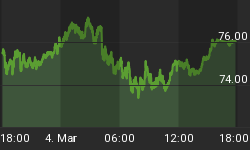On Monday October 13th, the Dow took the fifth biggest upward leap (in percentage terms) in its history and, most notably, since the 1930's. It appeared that Paulson and his fellow G-7 finance ministers had solved the credit crisis. Despite the fact that G-7 taxpayers will be stuck with $3.5 trillion of liabilities to support their governments' bailout plans, the stock markets nevertheless bustled with euphoria. The next day, reality dawned once again, and all markets closed down.
The truth is that these enormous bailouts enacted around the world, most notably in the United States, have done little or nothing to tackle the enormous deleveraging that is driving us into a serious recession and, if badly handled, a depression. Increasingly, politicians and commentators are talking about the need for a massive, new stimulus package, likely to cost trillions more dollars.
The extraordinary thing is that virtually no one dares even to mention the real underlying problem--that America has for the past thirty years been consuming more than it produces. During that time, the American consumer, accounting for 72 percent of Gross Domestic Product (GDP), has been financed from the retained earning of foreigners, most notably of China, Japan and more recently Russia.
Based on the willingness of these foreign producers to provide the funds, Americans have engaged in an orgy of easy credit and excessive consumption. In short, America is no longer paying its way, and is living off the earnings of its economic neighbors.
It is a rake's progress and can not last much longer, especially as the creditor nations, such as China, will soon need their own money back in order to finance their own leap to 'developed' economy status.
Millions of words have been spoken over the last month alone about how America must solve its economic and financial problems. But the stark realities that will result from massive deleveraging in the face of a massive recession have been barely considered. Apparently, no one dares to mention it.
We feel our readers should maintain an acute awareness of these underlying problems, particularly as the Presidential candidates, financial regulators and Wall Street cheerleaders appear bent on concealing the underlying truth.
The $3.5 trillion thus far committed to lubricate the credit markets have yet to produce any meaningful result. Even that vast total is unlikely to be sufficient to meet the tidal wave of bad loans yet to hit the banking system.
As the massive Bush-Greenspan credit orgy deleverages, corporate profitability is likely to fall dramatically, driving stock prices still lower, further eroding personal retirement accounts. Once confronted with unemployment and bleak prospects, even those who have been model financial citizens will be forced to default on credit card debts, auto and personal loans and, of course, home mortgages.
The tsunami of defaults crashing into our banking sector will ultimately overwhelm all government attempts to contain the damage.
As the mighty American economy shrinks, other countries, such as China, will see their export earnings fall. They may have to sell parts of their vast holdings of U.S. Treasury bonds, driving still higher the cost of dramatically increased U.S. Government borrowing.
On average and adjusting for inflation, U.S. equities have under-performed badly in this century. This will continue until America restructures itself to produce more than it consumes.
Meanwhile, the short-term Treasury bonds of hard currency governments, some offering negative yields, will continue to perform well in capital appreciation against the U.S. dollar.
China is likely to experience genuine, profitable systemic growth. However, in 2008 its stock market has fallen by some fifty percent. As a result, China and the BRIC countries could present good investment opportunities as we move into 2009.
As the recession deepens, gold could fall in price, at least in the near to medium term. But, the world's financial system will remain precariously balanced for some time, which will create a floor for gold. Furthermore, the vast amounts of 'monopoly' money now being injected into the major economies will eventually show up as inflation, possibly even threatening the viability of paper currency. Prudent investors will continue to hold a major allocation in gold.
For a more in depth analysis of our financial problems and the inherent dangers they pose for the U.S. economy and U.S. dollar denominated investments, read Peter Schiff's book "Crash Proof: How to Profit from the Coming Economic Collapse." Click here to order a copy today.
For an updated look at his investment strategy order a copy of his just released book "The Little Book of Bull Moves in Bear Markets." Click here to order your copy now.
More importantly, don't wait for reality to set in. Protect your wealth and preserve your purchasing power before it's too late. Discover the best way to buy gold at www.goldyoucanfold.com. Download Euro Pacific's free Special Report, "The Powerful Case for Investing in Foreign Securities" at www.researchreportone.com. Subscribe to our free, on-line investment newsletter, "The Global Investor" at http://www.europac.net/newsletter/newsletter.asp.















